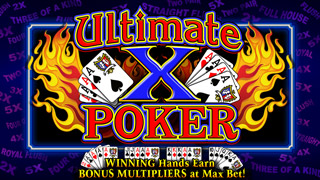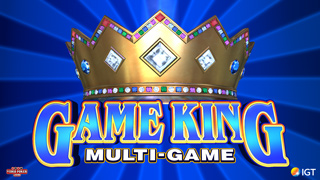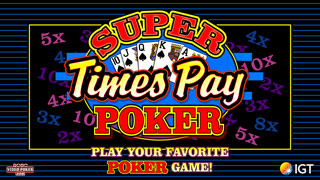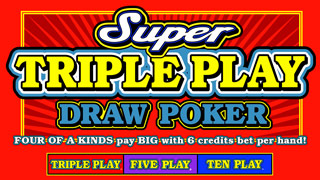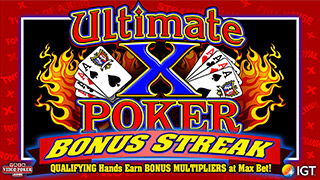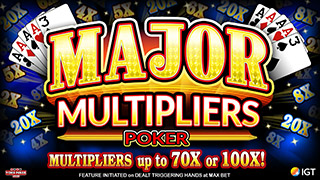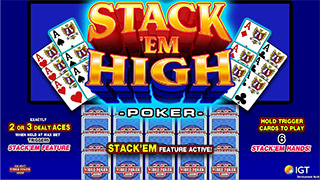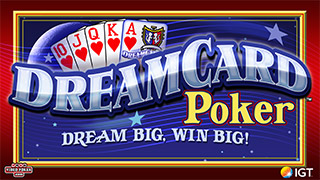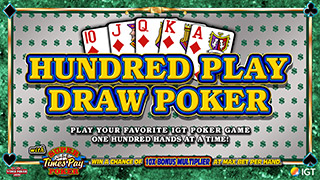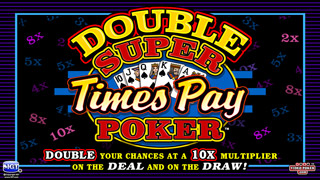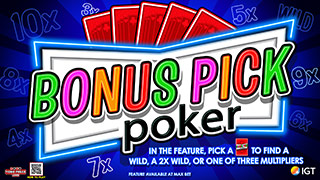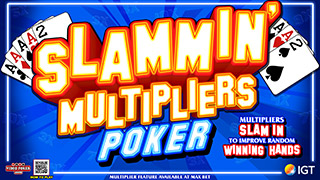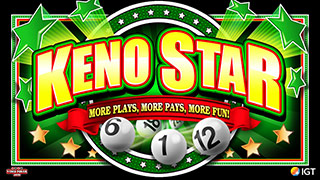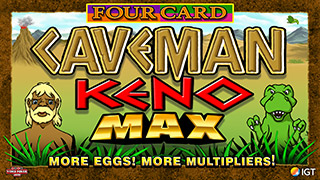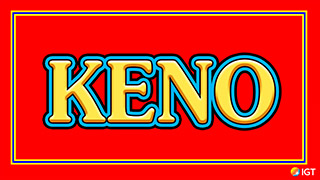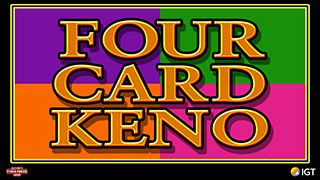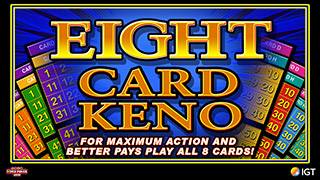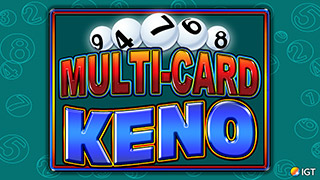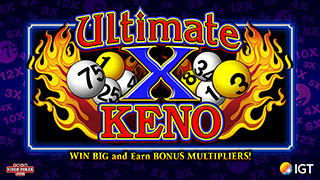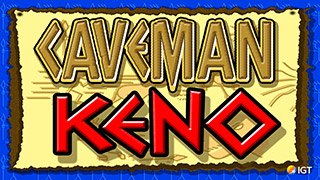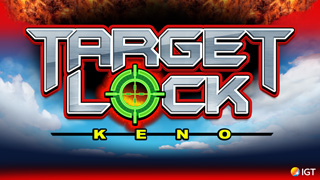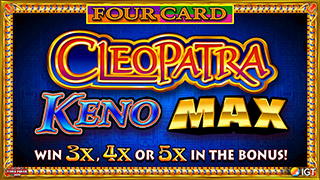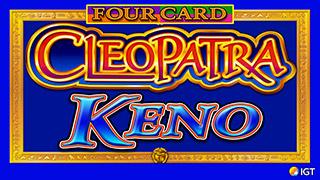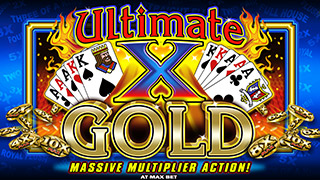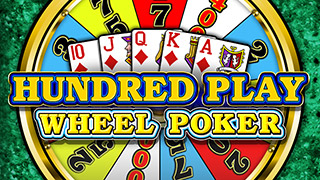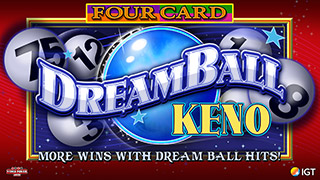How big should a progressive be?
-
BillyJoe
- Video Poker Master
- Posts: 3198
- Joined: Sat Aug 23, 2008 2:00 pm
How big should a progressive be?
Over the last few weeks, we have bandied about notions of "possibility" versus "probability", "advantage" play and the like. One thing that came through, while we all may not agree on everything, is that a progressive jackpot/RH raises the overall chance of a positive ER for an individual's play. So, Shadow, Frank or whomever, without going math crazy on me, at what level should a progressive be at that will help turn a bland, Vegas-strip pay table (like 8/5 DDB) into a desirable advantage play for the casual VP player?
-
New2vp
- Video Poker Master
- Posts: 1883
- Joined: Mon Sep 11, 2006 4:02 am
The following Web page has been around for a while:http://www.videopokerhelp.net/condensed-prog.htmWhile spot-checking this list, I found that the figures given here were spot-on accurate. All figures presume that you will be making necessary strategy adjustments to play accurately at the given royal flush level. (More advanced adjustments such as fine-tuning for level of competition, how long you are planning to play, meter rise, what value you place on your time, tax implications, and alternative plays are not considered here.)It has a list of the threshold royal flush jackpot necessary to achieve 100%, 101%, and 102% for many games. The dollar figures are based on quarter machines, so you would have to make the appropriate multiplication/division to adjust to other denominations. Alternatively you could multiply all the dollar figures given by 4, to give the number of coins necessary for a given ER.In the spirit of past disagreements between you guys, a recreational player that did not want to wait for breakeven returns before playing could also roughly adjust these figures to see what amount would be necessary for 98%, 99%, or some other target ER. It would take a bit more work to determine the thresholds if you also wished to make the appropriate strategy adjustments (but if you are willing to play at the lower levels, it may also be that you would not consider these strategy adjustments to be very significant).As a preview, for the 8/5 DDB example that you gave, the figures are $2378.75 for 100% (9515 coins), $2774.75 for 101% (11,099 coins), and $3169.25 for 102% (12,677 coins).
-
Frank Kneeland
- VP Veteran
- Posts: 762
- Joined: Wed Feb 02, 2011 6:59 pm
I'll have a lot to say on this, of course, but let me get some coffee in me first. BTW I just spent the last 3 days of my life playing several 9/6 DDB progressives. I hate them. But I'll be happy to comment. ~FK
-
Frank Kneeland
- VP Veteran
- Posts: 762
- Joined: Wed Feb 02, 2011 6:59 pm
Over the last few weeks, we have bandied about notions of "possibility" versus "probability, "advantage" play and the like. One thing that came through, while we all may not agree on everything, is that a progressive jackpot/RH raises the overall chance of a positive ER for an individual's play. So, Shadow, Frank or whomever, without going math crazy on me, at what level should a progressive be at that will help turn a bland, Vegas-strip pay table (like 8/5 DDB) into a desirable advantage play for the casual VP player? The cost of 8/5 DDB is about $9,500 and with the variance of that game I'm not sure I'd play one below $13,000. I can tell you that in the last year I've seen two (that's 2) 8/5 DDB dollar progressives get over that number, so your chances of finding one up that high, and getting a seat during a standard trip to Vegas are next to non-existent.Professional Progressives Players do not look for or limit themselves to a preferred game. They scout every progressive they can find and play the one with the highest proportional meter with no thought to personal preference. If you put what you like to play ahead of what's best to play, there's no point in even thinking about playing progressives.There's no personal preference or enjoyment in the activity. It's a full time JOB.More in next post...
-
Frank Kneeland
- VP Veteran
- Posts: 762
- Joined: Wed Feb 02, 2011 6:59 pm
So, Shadow, Frank or whomever, without going math crazy on me, at what level should a progressive be at that will help turn a bland, Vegas-strip pay table (like 8/5 DDB) into a desirable advantage play for the casual VP player? If you don't want to do a lot of math the best repository of progressive returns in an easy to carry format is to be found in the Frugal Scouting Guide. It's a pamphlet with several hundred of the most popular games and all the numbers at which progressives become 100% return or higher. There are also some RISK equations included and it's in a simple format that requires no math. Yours truly did all the work on the progressive numbers and a similar table can be found in my book, but obviously not in a format that's so casino portable. The Frugal Scouting Guide can fit in your pocket.There are almost no good progressives on the strip anymore and even if you go off strip it takes about 80 hours to scout the whole city. It's super to know that if you only played high progressives you'd do better, but finding them is the real problem these days. For an individual without a paid scout, the endeavor might be more trouble than it's worth.I'll post a fun mental exercise you can try to give you a feel for "what if I only played progressives" in another post.
-
Frank Kneeland
- VP Veteran
- Posts: 762
- Joined: Wed Feb 02, 2011 6:59 pm
What If I
only Played Progressives???
There seems to be a lot of confusion
about why high progressives are good to play and where the edge comes
from. Superficially this is hard to understand since the basic
concept is so simple. Bigger is better. No one contests that a 9/6
JoB game is better than a 8/5 Job game, because you get more for the
Flush and Full House. It's obvious. Where the disconnect seems to occur is when the
extra money comes on an infrequent Jackpot. We would all agree that a
job that paid $4,000 a month was better than one that paid $100 a
day. It wouldn't matter that the one job paid out 30 times as often,
the only thing that would matter was the monthly earn. Here the job
that pays once a month is clearly better by a $1,000 a month margin.
The same dynamic applies to video poker, it is simply harder to see
because of the obfuscating effect randomness has on results.
Try this trick, imagine what if I
always played high progressives?
In order to do this mental exercise
you'll need two data points:
You need to know exactly how many
jackpots you've hit in a period of time.
You need to know exactly what your
losses were during this same period of time.
Notice I said “jackpots” not “Royal
Flushes”. You could use RF's as your experiment, but any hand will
do as long as you remember exactly how many you got over a period of
time. For instance, some progressives have meters for 4 Aces. One
could play for high 4 Aces just as easily as they could for a high
Royal. Progressives do not HAVE to be high on the RF to be playable.
For this experiment I'm going to use RF's as an example.
OK so you've got your numbers. Now
here's what to do with them to play the “what if I had played
progressives” game.
Take your net loss and divide by
the number of Jackpots you have hit.
Now add this amount to the reset
value of the jackpot.
This is how high the JP would have
needed to be for you to have broken-even.
Example:In the last five years you've hit 10
Royals. You are also down $40,000 overall during that period.
$40,000 / 10 = $4,000
A Royal normally pays $4,000, so $4,000
+ $4,000 = $8,000All things being equal, had you only played progressives over $8,000 you be even instead of stuck.
Now imagine that you only played when
the JP was over $12,000??? Same number of Royals, same losses, but
because you got more for each of them a loss is magically transmuted
into a win.
Another even easier way to consider,
“what if I'd only played high progressives” would be to simply
multiply all your jackpots by 3 and see if you'd still be down. At
the very least, even if 3x wasn't enough to make you a winner
overall, you'd be down a lot less. A LOT less.
Bigger is better.You will not necessarily get more jackpots playing progressives, and you will have to take forced breaks from playing when someone hits the progressive, but when looked at from an equal amount of play you will be getting more for each jackpot.I don't really recommend looking at the
past as a predictor of the future, since obviously some people will
have gotten more jackpots than they should have, and others will have
gotten less. How many one should get is still the more important
factor for making good decisions in your future. The point of this
exercise was to use actual results to illustrate the basic concepts
for people that have difficulty thinking in terms of expectancy.
~FK
-
wilcoxfun
- Senior Member
- Posts: 472
- Joined: Thu Dec 14, 2006 4:10 pm
thank you for the information! I feel a need to go play some progressives!
-
Tony Felder
- Forum Regular
- Posts: 87
- Joined: Mon Dec 12, 2011 1:07 pm
I certainly see where playing progressives when they reach the numbers stated above are the correct play BUT in my area (Detroit) those are fictional numbers. Rarely does the .25 progressive get over $1200 and when the $1 progressive get above $5000 it is usually gone in a day.So it would seem that playing a progressive machine would have no real advantage unless the pay table was the same or better than non-progressive machines.To me it seems that the progressive theory play is more about geography than anything else.
-
Frank Kneeland
- VP Veteran
- Posts: 762
- Joined: Wed Feb 02, 2011 6:59 pm
I certainly see where playing progressives when they reach the numbers stated above are the correct play BUT in my area (Detroit) those are fictional numbers. Rarely does the .25 progressive get over $1200 and when the $1 progressive get above $5000 it is usually gone in a day.So it would seem that playing a progressive machine would have no real advantage unless the pay table was the same or better than non-progressive machines.To me it seems that the progressive theory play is more about geography than anything else.
The "IF" in my "what if" post was a big one. It's nearly impossible to find such high progressives anywhere these days. The point of this post was not to encourage people to try to play, only explain the concept. Believe it or not their are a lot of people out there that can't even understand why it's a good idea or where the edge comes from.In the 90's such opportunities were ubiquitous.~FK
-
Frank Kneeland
- VP Veteran
- Posts: 762
- Joined: Wed Feb 02, 2011 6:59 pm
I'd be curious to know for how many people multiplying their Royals by 3x or 4x would translate to them being ahead overall instead of stuck???



